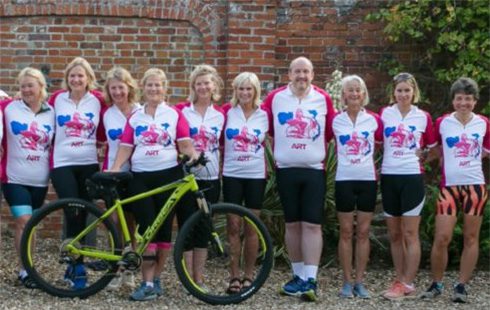
Celebrating National Tradesmen Day 2024: Honouring Craftsmanship at Anglia Factors
At Anglia Factors, craftsmanship is more than just a tradition, it’s the foundation of everything we do. Since our establishment in 1968, this...
Continue Reading
So, for the reasons above, in the choice of rent or buy we are beginning to turn away from home ownership towards renting. This trend appears to be forced upon us and not one that we have chosen. It would be logical to assume if property prices fell, mortgages were easier to get and wages rose then we would start buying property again. However, that doesn’t seem to be on the horizon so what are the relative merits of the two alternatives?
Most renters do so because they have no choice to rent or buy as they simply cannot afford to buy.
So it’s clear that there are strengths and weakness for both rent or buy. As said, in reality for a lot of people there is no choice. It’s a bit like asking the average citizen ‘would you buy or lease your Private Jet?’ The overwhelming reason for an increase in renting is the reason stated. It’s too darn expensive.
But we found two home owners in the limited group of people we’ve spoken to about this, who, given their time again, would not necessarily buy……
is a thirty-something married professional and mother of one young child. She has two pets and owns her fourth home – a detached property in Felixstowe. She says: “It dawned on me once we had ‘made it’ to our new house. What did it take for us to get here? How much have we spent climbing the ladder? How much stress have we experienced doing places up to make some money to buy a bigger, better home? I love the feeling of security, so far as we can choose when we move, and there is no landlord invasion, but that only goes so far. We are always dependant on what is happening in the job market and, actually, a mortgage also brings a lot of pressure.
“Moving is expensive and takes time. It removes the possibility of experimentation, of temporary adjustments to lifestyle. I’m not sure when I learned that home owning was so important and I reached my mid 30s before I analysed it. I’m not sure I would put so much time, effort and money into this area of my life if I had my time again. Partly because I think the days are gone when you can leave something for your children, unless you are very successful. I know so many older people now planning to downsize, enjoy their equity, protect it from the taxman and the nursing home owner. I’m not sure this journey is how we achieve contented living.”
another thirty-something professional with a husband, child and dog, adds: “When our financial pressures increased, we would have definitely moved, had we been renting, to decrease our monthly expenditure. However, the cost of selling and the emotional attachment kind of took that option off the table. In the meantime, we must have spent nearly a grand in fence panels over the last three years, have had to replace the windows and our boiler’s looking pretty fragile. I love our house – and I think I would feel frustrated had I not managed to buy – but you do find yourself wondering what all the fuss is about once you’re on this holy-grail of a property-ladder. Perhaps the traditional British view that buying is a key milestone is becoming less relevant – and we should be reassuring youngsters who can’t, or don’t want to, buy, that that’s a completely acceptable alternative.”
A survey by NatCen, Britain’s leading centre for independent social research, published in March 2016 says:
• The vast majority of young adults aged 18 to 40 want to own their own home – almost all home owners and three in five non-owners.
• Overall, young adults rank home ownership as more important than getting married or having children and achieving their career or educational goals.
So when it comes to the choice to rent or buy the market is forcing people to rent while it’s clear that they want to buy. And it isn’t one set of people is forcing another set of people to pay more it’s just market forces – there is surplus demand and, until that is redressed, the proportion of people renting will continue to increase.
The next question to ask is why do young people want to own their own home… the young women we spoke to say it’s not all it’s cracked up to be, so what is it that’s making it so appealing? We hesitate to know the answer but certainly the following have a part to play: –
So people want to own property despite it being harder than ever to do so, despite a growing supply of rent-able property and despite the experience being less than attractive

Celebrating National Tradesmen Day 2024: Honouring Craftsmanship at Anglia Factors
At Anglia Factors, craftsmanship is more than just a tradition, it’s the foundation of everything we do. Since our establishment in 1968, this...
Continue Reading

Anglia Factors team support breast cancer campaign with epic bike ride
Friday, 19th October was ‘Wear it Pink Day’ in aid of Breast Cancer Research UK, and Anglia Factors very own Dan, Claire and Alex Barr are...
Continue Reading